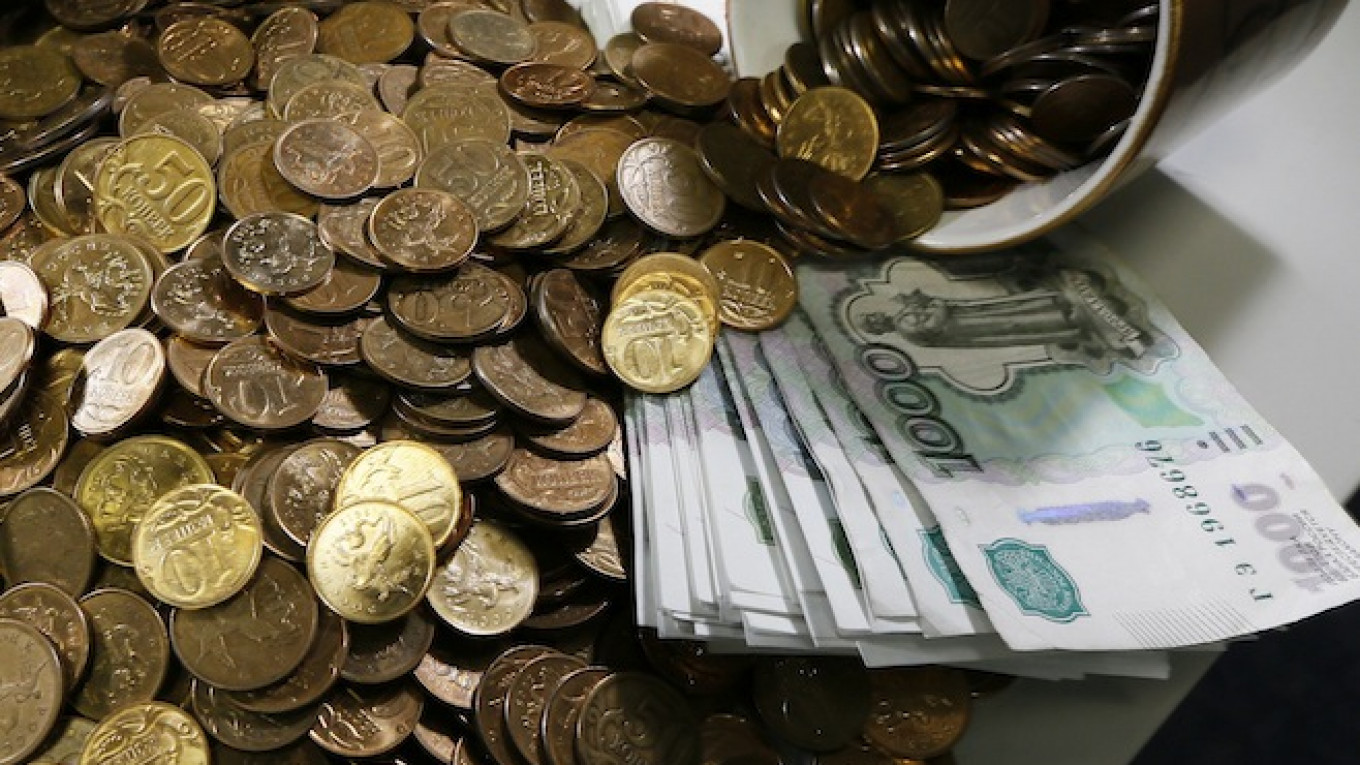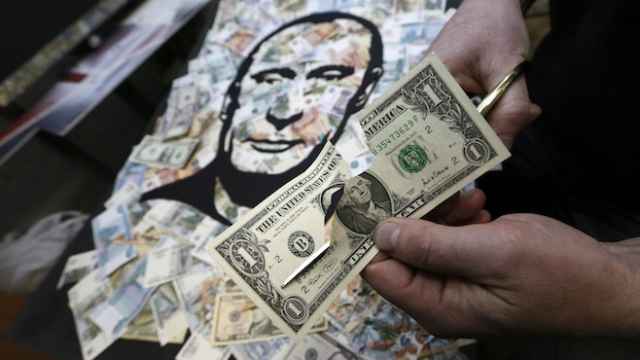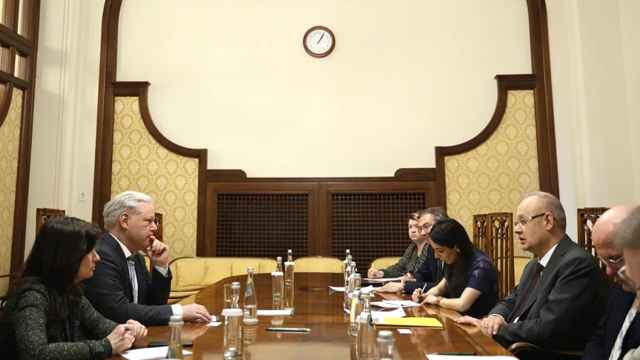The ruble strengthened on Tuesday as Russian exporters converted part of their foreign-currency earnings to meet tax payments, but weak oil prices capped gains.
At 0830 GMT, the ruble was around 0.8 percent stronger against the dollar at 46.72 and gained 0.7 percent to trade at 58.35 versus the euro.
The ruble has fluctuated wildly in recent weeks and is down almost 30 percent against the dollar this year, weighed down by plummeting oil prices and Western sanctions that have restricted Russian firms' access to international capital markets.
But it was stable on Monday, propped up by the start of the end-of-month tax period and by the European Union's decision not to impose more sanctions against Russia for now over Moscow's role in the Ukraine crisis.
"After two months of only mild exporter dollar sales to meet tax payments, there is potential for this to pick up markedly in coming days," Tom Levinson, a forex analyst at Sberbank CIB, said in a note.
"Corporates may judge this the time to take advantage of a high, but slightly more stable, dollar/ruble rate."
Market participants said exporters were selling foreign currency in the market in targeted amounts and that demand for forex had faded since October, when the Central Bank spent some $30 billion defending the ruble.
Analysts said the ruble's gains were likely to be limited, however, before next week's OPEC meeting, with the market guessing at the oil cartel's response to a drop in global oil prices of almost one-third since late June.
On Tuesday, Brent crude slipped to $79 a barrel, dropping for a sixth day out of seven. Oil is one of Russia's chief exports, so low prices hurt the country's balance of payments and weigh on the ruble.
Russian shares were mixed on Tuesday, with the dollar-denominated RTS index up 0.4 percent at 1,008 points, while its ruble-based peer MICEX traded 0.5 percent lower at 1,500 points.
A Message from The Moscow Times:
Dear readers,
We are facing unprecedented challenges. Russia's Prosecutor General's Office has designated The Moscow Times as an "undesirable" organization, criminalizing our work and putting our staff at risk of prosecution. This follows our earlier unjust labeling as a "foreign agent."
These actions are direct attempts to silence independent journalism in Russia. The authorities claim our work "discredits the decisions of the Russian leadership." We see things differently: we strive to provide accurate, unbiased reporting on Russia.
We, the journalists of The Moscow Times, refuse to be silenced. But to continue our work, we need your help.
Your support, no matter how small, makes a world of difference. If you can, please support us monthly starting from just $2. It's quick to set up, and every contribution makes a significant impact.
By supporting The Moscow Times, you're defending open, independent journalism in the face of repression. Thank you for standing with us.
Remind me later.






